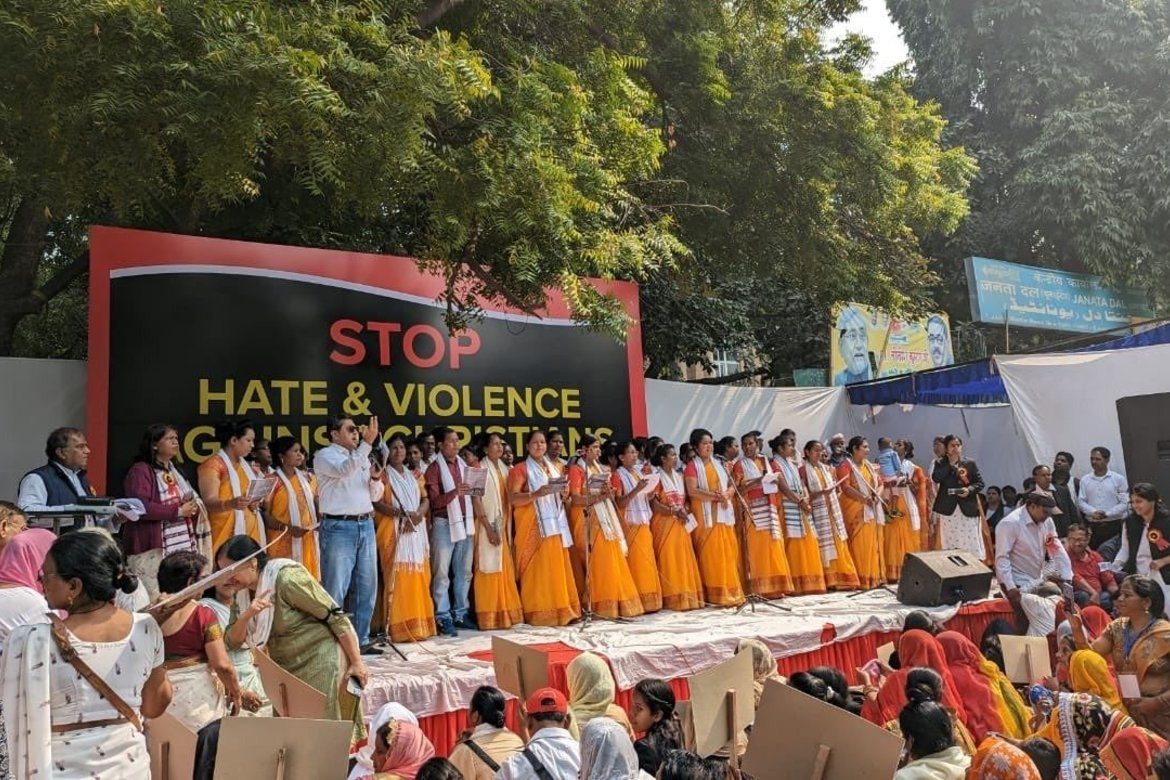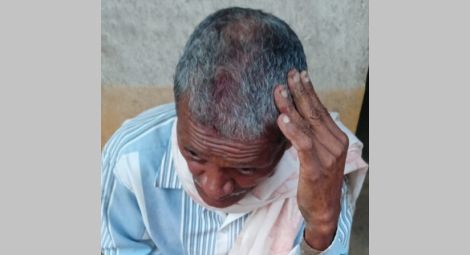India: Christians driven from their land - people forced to convert to Hinduism
"The level of violence is as high as it was before the elections in India," says a Christian leader.

Indian Christians in widespread protest against violence in India - February 2022.
Written by: Johannes Morken Photo: Vijayesh Lal/EFI
The forces of hate that India's Prime Minister Narendra Modi has unleashed against Muslims and Christians over the past decade have not been deterred by the setbacks the Hindu nationalist Modi suffered in the spring elections.
For the past ten years, India has been led by a man who claims to have been sent by his god and not born of a woman. Although democracy showed its strength in the election, Modi lost his outright majority instead of the overwhelming majority he could have used to realise his dream of turning India into a Hindu state under the Constitution. But his sense of being divinely anointed is unlikely to have diminished.
Hate is being normalised
What Modi and his right-wing supporters have managed to do since Modi and the BJP came to power in 2014 is to normalise hate - with an explosion in attacks against Muslims and Christians.
On 8 September, the Foreign Affairs and Defence Committee of the Norwegian Parliament will travel to India and Nepal. Religious freedom, other human rights and the situation of religious minorities under pressure must not be forgotten in discussions on trade, aid, peace and climate.
My sources in India report that the level of violence against Christians has continued unabated since the election. There are reports of physical violence, social boycotts, disruption of prayer meetings and worship, and forced conversions to Hinduism.
The mob entered private homes. Several people were injured. It was only two days after the attack that the police agreed to register a case, after initially refusing to do so.
A grim example: On 20 August, a mob of about 200 people attacked 18 Christian families in a village in Iradaha, in the Kanker district of the state of Chhattisgarh. The families are converts from Hinduism and have long been subjected to attempts to force them back into the Hindu faith.
The mob entered private homes. Several people were injured. It was only two days after the attack that the police agreed to register a case, after initially refusing to do so.

One of the victims of the mob's violence in Iradaha, Chhattisgarh. Photo: CSW
Attacks doubled in a year
Last year's report by the Evangelical Fellowship of India showed that documented violent attacks against Christians almost doubled from 2022 to 2023. The most vulnerable are women, indigenous people (Adivasis) and Dalits (the outcasts). These figures are likely to be just the tip of the iceberg - many are afraid to report incidents for fear of further violence and because they do not trust Modi's police.
A dozen states have laws criminalising conversion. The largest, Uttar Pradesh, led by the Hindu nationalist BJP, toughened the law this year, introducing life imprisonment for 'illegal conversion'. These laws are powerful tools in the hands of the mob: accusations of illegal conversion are enough to justify an attack and a report to the police.
In Uttar Pradesh, 1,682 people have been arrested in the four years since the law was passed - 320 of them Christians, the rest Muslims. There have been very few convictions. In the eastern part of the state, several churches have been forcibly closed. Elsewhere, congregations have chosen to close to avoid attacks. Instead, they meet in private homes.
Lynching of Muslims
Violence against Muslims has not stopped either. A wave of attacks has hit Muslims since the election, and several have been lynched. They are accused of slaughtering cows - India's sacred cows. Muslims are targeted by a discriminatory citizenship law and boycotts of their shops. Festivals are used to incite hatred.
The US Commission on International Religious Freedom (USCIRF) reports that mosques have been destroyed, even in the presence of police. Modi himself stoked the flames before the election: in a campaign speech on 21 April this year, he called Muslims 'infiltrators'. His divisive rhetoric may not have won him the election, but his extremists are gaining strength wherever they can.
In The Wire, Siddharth Varadarajan wrote that Modi has strengthened his position based on the West's need for a counterbalance to China. Is the West still lured by lucrative business opportunities? The Foreign and Defence Committee in India needs to be very clear: Free trade does not mean sacrificing the freedom of severely oppressed Muslims and Christians.